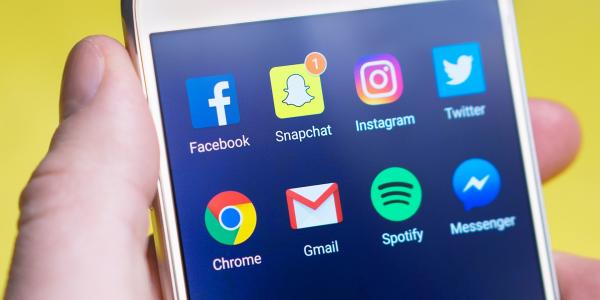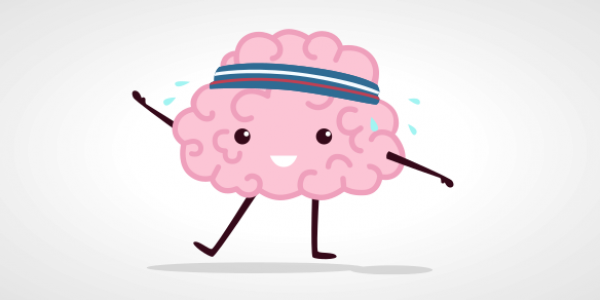Take a Break from Social Media

Your Brain WIll Thank You.
Are you reading this article because you got here from our Facebook page? In fact, how often do you check your social media accounts? How many times today have you snuck a peek at Facebook, Instagram, or Snapchat? Any idea?
Here’s another question: how often do you feel the impulse to check social media?
Well, if you’re like most adults, you’ll spend an average of 2 hours on social media throughout the day. And that number is on the rise, up from just over one hour five years ago. We love our social media.
There are reasons why. Social media is designed to make you want to look at it. Facebook, Instagram (actually, that’s owned by Facebook), YouTube, and Snapchat are all billion dollar companies that make money by selling your attention. The more time you spend on any social media platform, the more opportunities there are for the platform to show you ads. Ads are how the companies make money. Every single minute you spend on social media is a minute spent making money for someone else.
And so, social media companies work really, really hard to make you want to be there, and to make you want to come back. These companies spend so much money trying to capture and hold our attention, building in features that manipulate our brain chemistry to make us feel like we need to return again and again. The BBC’s Science Focus has a great article on the tricks that social media companies use to make us feel like we need to keep returning to our social media apps, and I’d strongly recommend that you spend a few moments reading that. As they note, “social media isn’t designed with your long-term happiness in mind.”
The reason why this matters is that social media platforms actually have been shown to contribute to a rise in stress and feelings of comparative life dissatisfaction. Researchers from Lancaster University have begun to call this “technostress.” They have found that when facing such stress, instead of switching it off or using them less, people are moving from one aspect of social media platforms to another (eg., switching from following friends’ activities to chat or playing games). In other words, people are making an attempt to escape the cause of the stress without leaving the medium on which it originated. The researchers reported that “even when users are stressed from SNS (Social Network Sites) use, they are using the same platforms to cope with that stress, diverting themselves through other activities on the SNS, and ultimately building compulsive and excessive behavior… and an addiction is formed.”
An addiction, you’ll recall, that the social media companies want to be formed. An addiction that has been shown to contribute to feelings of depression, low self-esteem, body image issues, anxiety, and social isolation.
So, take a break!
We know that taking a break from addictive behaviors for at least a month can help to reset the brain a bit, and it may start to give your attention and focus back to yourself. But, it can be hard to take a break from something that has been literally constructed from the ground up to make you want it. Plus, it’s probably not feasible for most people to completely remove themselves from all technology, so deleting all of our accounts probably won’t happen.
Here are a few tips and tricks to try to give you a reasonable break from your social media, and to give your brain a much needed rest from all of the FOMO (Fear Of Missing Out):
- Put your phone out of reach at work and at home. Rather than have your phone right next to you all day long while you work at your computer, find a place that you can put it that you won’t be tempted to peek. Then, when you get home, take it out of your pocket and put it away, especially while you’re interacting with your family and friends. You probably don’t really need it anyway.
- Turn off notifications! Notifications are the little dings, buzzes, and messages that the social media apps send you throughout the day to let you know that another friend commented on that picture of your cousin’s new puppy, or that seven people have mentioned you in a conversation. Those things are so difficult to ignore, because it seems like we really want to know what people are saying about us! But, again, that’s one more part of the tool designed to make you want to look. Turn them off in the settings of your phone so that you won’t have those cues messing with your brain all day long.
- Schedule “social media free” days. My wife and I do this in our house a few times a month, much to the annoyance of our children. We’ll get up on a Saturday or Sunday morning and announce to everyone (out loud and in person, rather than through a text) that “today is a no-screens day!” After tolerating an hour or so of groans and complaints, those days are often really great, since no one is even tempted to escape from a moment of boredom or dissatisfaction to disappear into a screen for an hour. Rather, we all just figure out how to tolerate each other, and that usually results in more interaction and connection time.
- Or, better yet, choose to take a month off of all social media. Delete your apps from your phones. Set up a block on your work computer so that it’s difficult to pull up Facebook. Tell your friends and family that you’re doing a social media detox.
Do you have any other ideas? If so, pop over to our Facebook page (I know, I know... the irony here is almost too absurd) to let us know what you think!
Related Articles

Exercise Your Body, Exercise Your Brain
For years, we’ve had an inkling that exercise may be good for the brain. But now, researchers are beginning to understand how this could be!

Laughter: Good for Your Brain
Stop me if you heard this one: humor and laughing is really good for you. That's not a joke. It's science!

What Happens When We Eliminate Boredom?
Right there in your pocket, you have a device that can entertain your brain any time you want, and you'll never have to feel bored again. But, is there a cost to never being bored?





